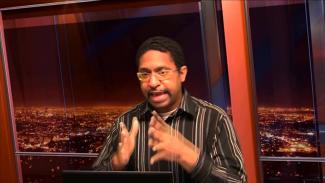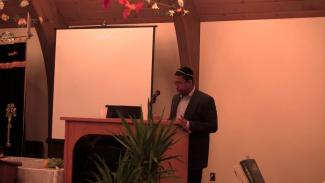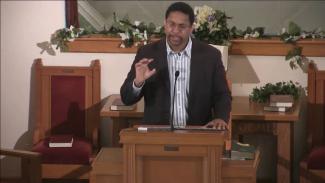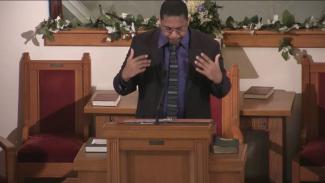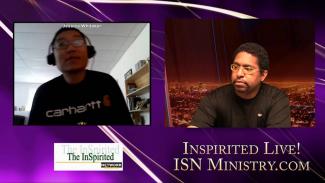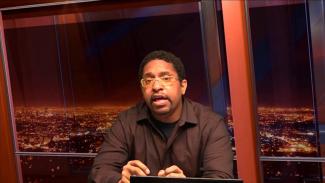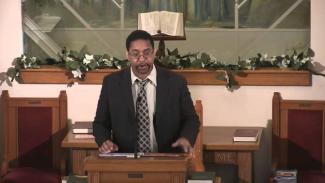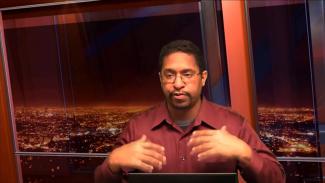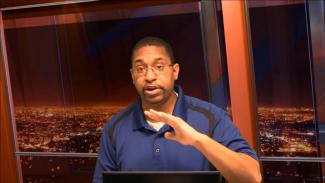Jeremiah's words had come to pass. The Babylonians had invaded and taken captives of the people of Judah. A remnant remained and new challenges arose for the nation. The people asked Jeremiah to inquire of the Lord for them. What words of warning did the prophet have for the people? How did they respond? What lessons can we learn from them today? Why was it wrong to seek safety in Egypt? In what ways do we tend to go back to Egypt today? What do these stories teach us about how we should relate to God's Word?
Topic: Prophecy
To see more broadcasts select show names, a year, or all video media.As Jewish people celebrate the feast of Sukkot, Christians should be reminded of what it meant and what it pointed to in prophecy? What if I told you it had a hidden meaning that was significant for our time today? Was the feast of Tabernacles only a commemoration of freedom from Egyptian bondage? Or was there something it pointed to in the prophetic future and the ministry of Jesus? Why did God want the people to dwell in booths? We will take a brief look at salvation history as good and evil struggle for custody of humanity in the Great Controversy.
John Spellman completes his 3 part series on the 3rd Angel's Message discussing the final test of the end times. Who will receive the mark of the beast? How can we obtain the seal of God? Who is the beast and what is the beasts mark? How does one avoid the mark? What end time conditions will confront God's people? Should we be afraid? How does faith play a role in the survival of God's people?
John Spellman preaches part 2 of the 3 part series on the 3 angels message: Babylon Is Fallen. What does this message mean for the church today? God is calling a people out of Babylon. But, is it possible to recognize what the Book of Revelation meant by Babylon? Is there still a false system of worship that is uniting with the world against God today? Who is the great harlot of Revelation? How does it influence and play a role in the system of confusion that exists today? What is God telling Christians in order to prepare them for the final crisis?
What were the last days of Jesus on earth like? How did His followers understand His message? Did Jesus have to go to the cross? What messages are there in the struggles of Jesus for us today? What can we learn from the betrayals of Judas and Peter? What was so significant about the Passover and the time of Jesus' death? How was the last supper similar to a marriage covenant? This week we explore the fulfillment of the prophecies surrounding the death of Jesus and what He accomplished on our behalf.
Why did Jesus warn the religious leaders of His time? What was the response of the religous leaders? What did God do with the gospel? What events lead up to the second coming? What hope exists in the midst of the troubles of the last days? What will people, society, and other conditions be like in those times? How do we know there is a dual fulfillment to Jesus' prophecy? As Jesus began to expound on how the temple in Jerusalem would be destroyed (in 70AD), He intermingled events that had an immediate fulfillment and a fulfillment to come in the last days.
John Spellman speaks on the 1st Angels message. What does this message have to do with our time today? Should it still be preached in churches? Why is the Sabbath the center of controversy in today's world? Why is Creation so important to our faith? If the hour of judgment is come, what does that mean for believers today? This presentation focuses on the ever-lasting gospel that must be preached to all before the end can come.
John Spellman preaches on the 7th church of Revelation. What is Jesus' message to the church of our time? How does Jesus introduce Himself to the church of our time in a unique manner that addresses the unique problems and challenges of today? Jesus: the amen, the faithful and true witness, the beginning of the creation of God calls the church to recognize its true condition. As a forest of trees would be unstable and unsafe if each of those trees was not rooted in the soil, so today God's people must be rooted in Jesus and anchored in truth.
How does Matthew introduce the gospel? Who exactly was Matthew and why was his perspective on Jesus' ministry unique? Why does he use a genealogy to introduce Jesus as the Messiah and what does this ancestral record say about who Jesus is? What can we learn in the Bible about who Jesus is as a person, what God is like, and His mission here on earth? Was Jesus really divine? What did Jesus reveal to the world about God? What can we learn about God through the people Jesus was related to? What hope might be in all this for us today?
Dr. Tasker joins live as we discuss the seven Churches of Revelation. What do the messages to the 7 churches reveal to Christians today? What problems are depicted in these churches and what help does Jesus offer to address these problems? How is Jesus introduced to each church? What approach does He use to commend and rebuke them? In what ways are we like each of the churches or in danger of making similar choices? This week we look a the Great Controversy through the seven churches as Satan attacks the church from within.
How did Jesus' teachings portray the Great Controversy? In what way did Jesus describe the struggle between good and evil? How can we have rest in Jesus? In what ways does He lighten our burdens? With all the challenges we face in life, can this rest Jesus offers truly make a difference? What does the parable of the sower reveal about how people respond to the gospel? How does it portray the struggle between good and evil? What kind of ground best represents you and I? What did Jesus teach about foundations? How can we make Him our rock?
Jeremiah has a very human response to his pain and suffering resulting from being rejected as he spoke the Word of the Lord. What lessons can we learn about suffering and going through hardship resulting from standing for our faith? Will God's people today have a similar experience? What did Jeremiah learn about his weaknesses and what God does in spite of human weakness? How did Pashur respond to Jeremiah? What was God trying to say to the people of Judah? Is prophecy conditional or always fulfilled once a prophet utters the words?

